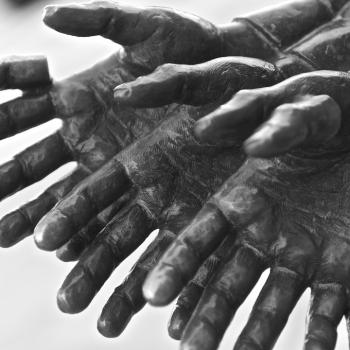I’ve always had a difficult time appreciating the Apostle Paul. Reading his epistles is like reading someone’s private mail… from two thousand years ago. Context gets lost, meaning obscured by cultural differences. Some of his writings have been used toward ill ends. But as I read the complete Bible last year, I began to see something familiar in Paul. I began to see him as an organizer, working tirelessly for the cause he believed in.
While I’m no Pauline scholar, I think the millennia of changing circumstances, schisms and revolutions have made hazy our view of the “Super Apostle.” To understand Paul, we have to see him in the context of the ancient Roman world. We have to appreciate him on his own terms.
The Busiest Apostle
From the record left in Acts, we know Paul planted at least fourteen churches throughout Asia Minor and Greece. Always on the move, Paul’s contributions to the movement we now call Christianity can’t be overstated. It’s possible there would be no Christianity as we know it without him.
Being an organizer in a newly emerging social movement is not glamorous work. His days were filled with exchanging letters, providing spiritual guidance, and unending travel. Oh, and a lot of arguing. Everywhere he went, he laid foundations and cultivated ties between local groups of believers that would be vital to enduring the coming waves of persecution.
Consider Paul’s dialogue with the pagan philosophers of Athens in Acts 17. He’d already been run out of Thessaloniki and Berea, barely escaping with his life. You might expect him to lay low for a while and catch his breath. Instead, he engaged in a dialogue with the Athenians. Well versed in Greek culture, he grounded his arguments in what would be familiar to his audience (Acts 17:23, 28), proposing humanity’s aspiration toward God as something innate to all of us.
Enemy to Champion
“For you have heard of my previous way of life in Judaism, how intensely I persecuted the church of God and tried to destroy it. I was advancing in Judaism beyond many of my own age among my people and was extremely zealous for the traditions of my fathers. But when God, who set me apart from my mother’s womb and called me by his grace, my immediate response was not to consult any human being.” – Galatians 1:13-16
Imagine you’re Peter, James, or another of the first believers living on the periphery of the Roman Empire. You’re part of this new movement, the Way of Jesus, that promises to turn the world upside down, but every day is a constant struggle because you’re under siege from all sides. You’re hounded by the Roman authorities and persecuted by the local religious elite. Your brother won’t speak to you anymore because you’ve joined this divisive new sect. You’re no longer welcome in the temple.
Then along comes one of your most feared persecutors, a man whose work killed some of your own brothers… and he says he wants to join you because the Lord spoke to him on the road to Damascus!
What would you do? Social movements today are often wary of infiltrators, and rightfully so. Having one of your sworn enemies knocking on the door couldn’t have been an easy situation for the other disciples.
The decision to let Paul in speaks to the mercy in the disciples’ hearts, but it also says something about Paul. He sacrificed high status, comfort and safety to answer his calling. Later, he gave his own life. Paul’s journey, and the other apostles’ forgiving an enemy, is a testament to how God challenges us to reconsider what is most important.

















